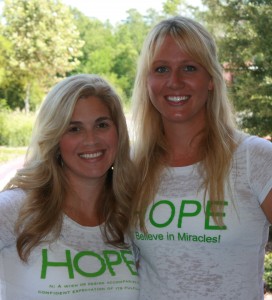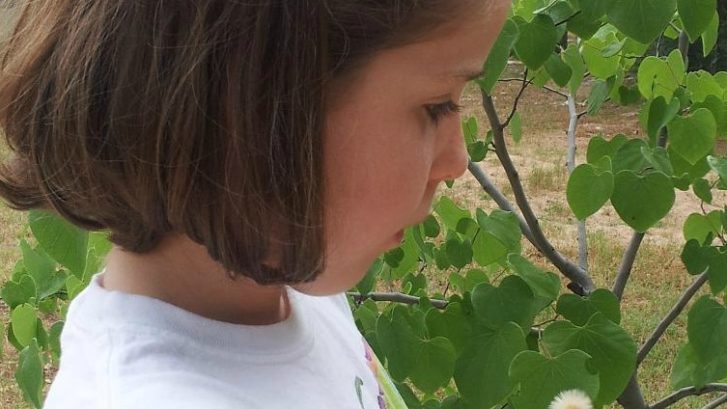AUSTIN, TEXAS (June 26, 2012) Beyond Batten Disease Foundation today announced that it is partnering with the American Brain Foundation (formerly the American Academy of Neurology Foundation) to create the first clinical research fellowship for developing a treatment and cure for juvenile Batten disease.
The “Clinical Research Training Fellowship in Juvenile Neuronal Ceroid Lipofuscinosis” is an important milestone in the fight against juvenile Batten disease because it will help translate basic research findings quickly and efficiently into medical practice, benefiting children who have the devastating, fatal illness.
Juvenile Batten disease is a rare, inherited, neurodegenerative condition with symptoms first appearing around the age of six. It initially causes vision loss leading to total blindness and then seizures. The malady progressively impairs cognitive and motor capacities, and typically results in death by the late teens or 20s. Launched in 2008, Beyond Batten Disease Foundation supports research to develop a treatment and cure for juvenile Batten disease and also to prevent it, along with hundreds of other serious, genetic, childhood sicknesses.
The new, two-year, $130,000 fellowship comes in the wake of declining government support for Batten disease research. Over the past five years, funding from the National Institutes of Health has decreased by 20 percent. However, there has never been a more promising time for this research, according to Danielle Kerkovich, PhD, Principal Scientist at the Beyond Batten Disease Foundation.
Kerkovich says new, published findings significantly advance the scientific and medical communities’ understanding of the disorder. She also notes that database resources and bioinformatics (the application of computer science and information technology to the fields of biology and medicine) now provide researchers with unprecedented access to information on Batten disease-relevant topics. Additionally, automation technology – standard in the pharmaceutical industry – has become available to academia, enabling non-commercial researchers to test thousands of potential drugs during the earliest phases of investigation.
“We’re thrilled to partner with the American Brain Foundation, especially given these developments which open new opportunities to make major headway in research to treat and cure juvenile Batten disease,” said Kerkovich. “Having pharma-grade tools will accelerate the development of lifesaving drugs from the research lab into the clinic to treat young patients.”
BBDF/ABF Fellowship
June 26, 2012
The fellowship also is a move to cultivate juvenile Batten disease clinician scientists. American Brain Foundation fellowships attract the top research talent and provide a proven starting point for clinical scientists to build competitive careers in translational research. These fellows have gone on to receive more than $23 million in NIH funding to study diseases that affect the brain and spinal cord.
“We likewise are excited about the fellowship with Beyond Batten Disease Foundation – it helps advance our mission which is to support vital research and education to discover causes, improved treatments and cures for brain and other nervous system diseases,” said John Mazziotta, MD, PhD, Chair of the American Brain Foundation’s Board of Trustees and Professor and Chair of UCLA’s Department of Neurology and Brain Mapping Center in Los Angeles. “It’s particularly important to support research on Batten disease and other rare, neurological disorders – the so-called ‘orphan’ diseases that don’t attract as much funding as more common ailments but that also need to be addressed.”
Financial support for the fellowship comes from The Will Herndon Fund for Juvenile Batten Research, a donor-advised fund within the Beyond Batten Disease Foundation. In addition to the fellowship with American Brain Foundation, the Beyond Batten Disease Foundation has facilitated or funded many other ground-breaking, research initiatives including: the largest, single grant in juvenile Batten disease research history – a $2.5 million gift to Texas Children’s Hospital in Houston; the first conference focused on drug discovery for juvenile Batten disease (held in partnership with the Alzheimer’s Drug Discovery Foundation); and studies exploring new areas of investigation at leading U.S. and European universities.
About the American Brain Foundation
The American Brain Foundation, the foundation of the American Academy of Neurology, supports vital research and education to discover causes, improved treatments, and cures for brain and other nervous system diseases. Learn more at http://www.CureBrainDisease.org or find us on Facebook. For more information about the American Academy of Neurology, visit http://www.aan.com or find us on Facebook, Twitter, Google+ and YouTube.
About Beyond Batten Disease Foundation
Beyond Batten Disease Foundation works to cure and prevent Batten disease, a rare, inherited neurological disorder that strikes young children, first causing vision loss and seizures, then cognitive and motor impairment, and ultimately death by the late teens or 20s. The foundation raises funds for research and is leading development of an easy and inexpensive, groundbreaking blood test to detect the gene mutations that cause Batten disease as well as 600-plus, other rare but serious and often fatal childhood ailments. For more information, visit www.beyondbatten.org.
# # #










